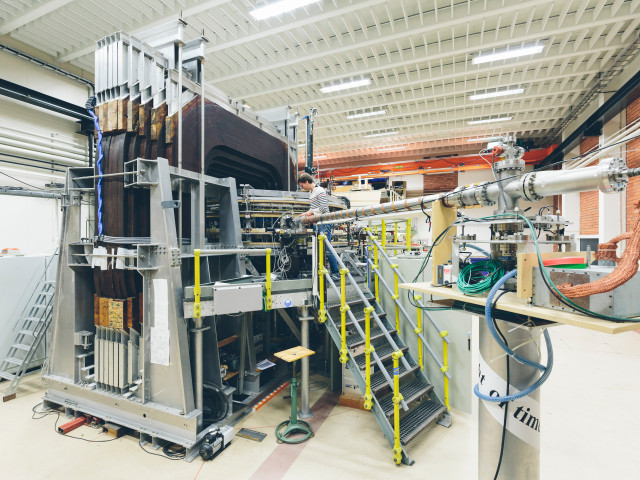- 2-dimensional Fourier transform, discrete Fourier transform
- Foundations of scalar diffraction theory
- Kirchhoff and Rayleigh-Sommerfeld diffraction theories
- Fresnel and Fraunhofer diffraction
- Wave-optics analysis of coherent systems
- Frequency analysis of optical imaging systems
- Image processing
SK2340 Fourier optics 6.0 credits
This course has been discontinued.
Decision to discontinue this course:
No information inserted
Information per course offering
Course offerings are missing for current or upcoming semesters.
Course syllabus as PDF
Please note: all information from the Course syllabus is available on this page in an accessible format.
Course syllabus SK2340 (Spring 2022–)Content and learning outcomes
Course contents
Intended learning outcomes
The overall aim of the course is that you should be able to analyze optical problems with the help of the approximations made in Fourier optics. This means that you should be able to:
- Describe the mathematical characteristics of the two dimensional Fourier transform and explain their relevance for the analysis of linear optical systems
- Explain the basics of scalar diffraction theory
- Analyze different solution methods for the Helmholtz equation
- Apply the Fresnel and Fraunhofer approximation to calculate the diffraction patterns of standard optical components
- Reflect on the physical implications of diffraction and their influence on the resolution in optical imaging systems
Literature and preparations
Specific prerequisites
Knowledge of the physics of electromagnetic radiation (SK1120 Waves, 6 hp or corresponding) and in basic mathematics (vector analysis, integrals, differential equations).
English B / English 6
Literature
Examination and completion
Grading scale
Examination
- PRO1 - Project, 4.0 credits, grading scale: A, B, C, D, E, FX, F
- LAB1 - Laboratory, 2.0 credits, grading scale: P, F
Based on recommendation from KTH’s coordinator for disabilities, the examiner will decide how to adapt an examination for students with documented disability.
The examiner may apply another examination format when re-examining individual students.
If the course is discontinued, students may request to be examined during the following two academic years.
LAB1: Computer labs, Grade P/F
PRO1: Project presentation, Grade A-F
Other requirements for final grade
To pass the course you have to pass the lab and the project presentation (simulation of an optical system with Fourier optics).
Examiner
Ethical approach
- All members of a group are responsible for the group's work.
- In any assessment, every student shall honestly disclose any help received and sources used.
- In an oral assessment, every student shall be able to present and answer questions about the entire assignment and solution.